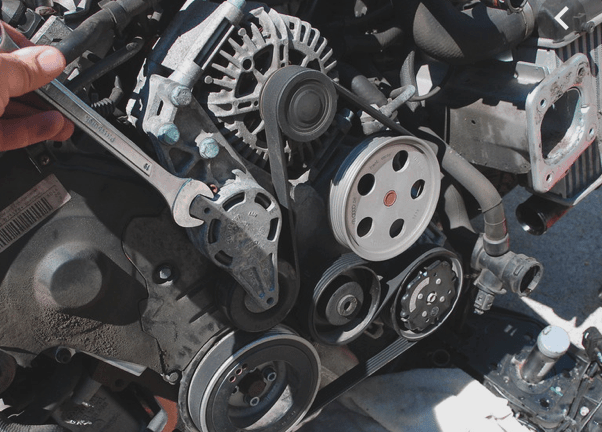One of the most common issues with a vehicle is a bad serpentine belt. If you suspect that your Hyundai i20 has this problem, we’ll give you the common symptoms below, as well as how to replace it.
The good news is that serpentine belts are cheap, and in the grand scheme of things, relatively easy to replace. The sound that a bad serpentine belt makes is a squealing sound. It has a higher pitch than an engine rattling.
Bad Serpentine Belt Symptoms: Hyundai i20
Here are the most common symptoms of a bad serpentine belt in the Hyundai i20:
Squealing Belt
Often, the first sign of a bad serpentine belt in your i20 is squealing. The squealing should match the engine RPM. That is to say, that when you rev the engine, the squeal changes pitch accordingly.
It might also go away entirely if you rev your engine a few times. This happens because the serpentine belt gets heat in it and is able to grab ahold of the pulleys. At this point it is no longer slipping. It’s a matter of time before revving the engine no longer corrects the problem.

Visible Wear and Cracking on the Belt
As your serpentine belt ages, it will begin to show visible signs of wear. These belts are not designed to last the life of an engine. A bad serpentine belt may have:
- Glazing
- Cracks
- Smooth Surface
- Missing Pieces
- Uneven Wear
- Missing/Damaged Ribs
Any of these items are enough to replace the belt.
Engine Accessories Not Working
The serpentine belt powers your engine accessories, such as the power steering pump and air conditioning compressor. If these accessories are not working, that’s an indication that the serpentine belt is shot or missing entirely. Get a new belt immediately.
Overheating
The serpentine belt is responsible for turning the water pump in your i20. If it fails, water can no longer circulate throughout the engine. You also shouldn’t have power steering (although some vehicles now have electric power steering so be careful).
If the belt is off all the way, or the engine is overheating, do not drive it somewhere to have it looked at. Overheating the engine and blowing a head gasket will cost way more than a new serpentine belt.
Hyundai i20 Serpentine Belt Replacement
Replacing a serpentine belt is a straightforward process. Your i20 uses a tensioner to keep the serpentine belt tight.
The first thing you are going to need to do is find the tensioner and apply force to it in order to loosen the serpentine belt. Once you’ve applied force you can pull the belt off of a pulley. Now, let off the tensioner slowly.
We recommend taking a picture of the belt route, and making sure that you have a diagram of the route before taking the belt off. The last thing you want is to not remember how to get the belt back on. You should see a sticker under your i20’s hood with serpentine belt route information.
Here’s a great video from Scotty Kilmer on how to change a serpentine belt:
Conclusion: Bad Serpentine Belt Diagnosis – i20
Serpentine belt replacement is something that any shade tree mechanic can do with very few tools. So if you have reason to believe that a bad serpentine belt is causing your Hyundai i20’s engine to squeal, replacing it might be exactly what you need to do.
If there is anything that you would like to add, please leave a comment below. Good luck!

